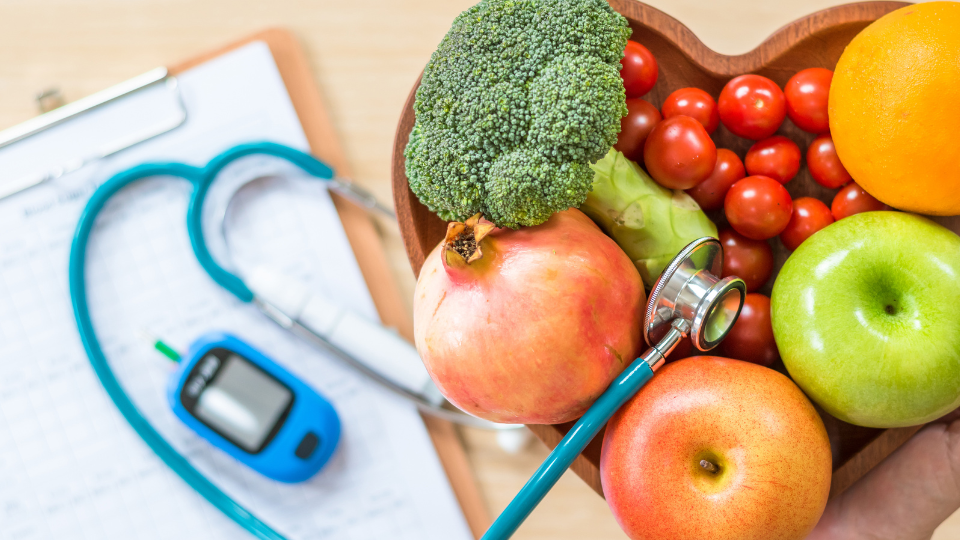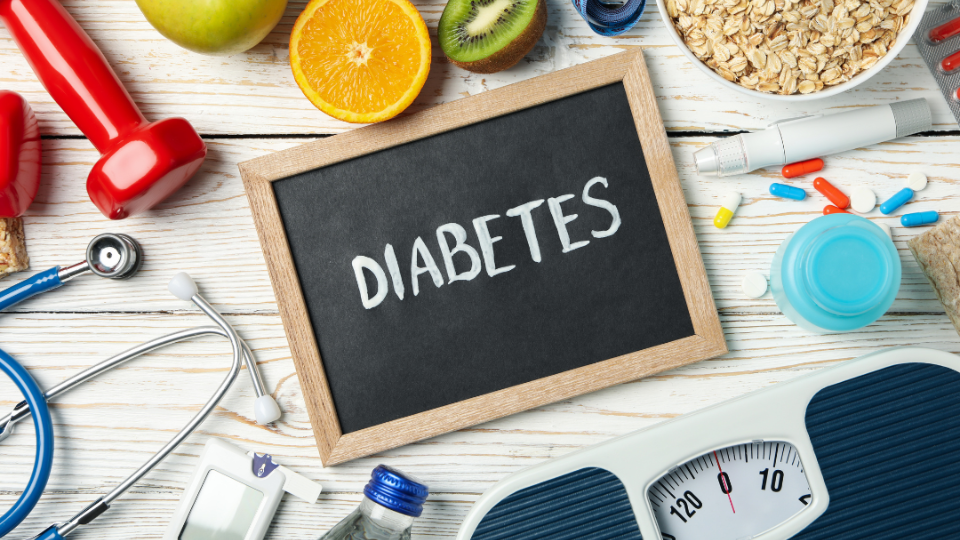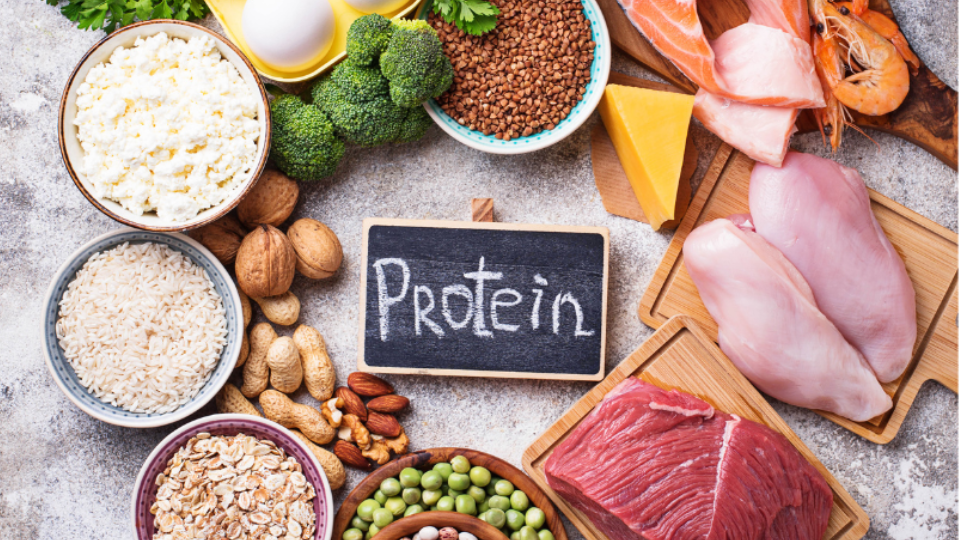Eggs Are Back on the Menu!

Many people wonder if eating eggs regularly can be part of a healthy diet. This confusion comes, in part, from conflicting and confusing dietary recommendations over the past three decades. Because eggs are naturally high in cholesterol, many health and nutrition professionals have recommended that adults eat less than three eggs a week. And for those who have heart and vessel diseases, the recommendation has been even more strict. The reason these recommendations were given is because the yolk of an egg is naturally high in cholesterol, about 160 mg per egg. We know that individuals with elevated blood cholesterol levels have a higher risk of developing heart and vessel diseases. So, reducing the amount of cholesterol we eat seemed like a logical way to reduce blood cholesterol levels and reduce risk for heart attack and stroke. But new and emerging research is suggesting that eating eggs regularly has very little effect on blood cholesterol levels. Part of this is due to the fact that we make cholesterol in our bodies as a part of normal functioning. Our bodies have the ability to make more, or less, cholesterol depending on need and what we are eating. Cholesterol levels seem to be more impacted by genetic and other lifestyle factors than by our diet. This means that medication may be necessary if you produce more cholesterol naturally. But there may also be some need for dietary change when attempting to reduce cholesterol levels. A small increase in dietary cholesterol could become a problem for individuals who have high cholesterol levels and/or have suffered a heart attack or other cardiovascular problem like a stroke.  Other recent research is suggesting that eggs can help individuals reduce their risk for heart and vessel diseases because they are a rich source of protein and other nutrients. Eggs are a wonderful source of protein, about 6 grams per egg, and they provide good amounts of vitamins D, B, and A. Eggs are also rich sources of the mineral selenium and choline, which is a vitamin-like substance that helps our livers function properly and contributes to a healthy heart. To realize these awesome benefits we must consume whole eggs, and not just the whites. The egg yolk contains all of the vitamins and minerals where the white is almost completely protein. Also, the fat found in the egg yolk is mostly unsaturated fatty acids that help improve the functioning of our vessels and heart.
Other recent research is suggesting that eggs can help individuals reduce their risk for heart and vessel diseases because they are a rich source of protein and other nutrients. Eggs are a wonderful source of protein, about 6 grams per egg, and they provide good amounts of vitamins D, B, and A. Eggs are also rich sources of the mineral selenium and choline, which is a vitamin-like substance that helps our livers function properly and contributes to a healthy heart. To realize these awesome benefits we must consume whole eggs, and not just the whites. The egg yolk contains all of the vitamins and minerals where the white is almost completely protein. Also, the fat found in the egg yolk is mostly unsaturated fatty acids that help improve the functioning of our vessels and heart.
Moderation is still important when deciding how many eggs to consume. Currently it is recommended that adult individuals have no more than 6 eggs per week, or 1 per day. This will help ensure that everyone finds benefit from eating eggs and avoids the potential for developing disease. Also, be aware of what you are eating with your eggs. Often people eat foods high in saturated fat and cholesterol with their eggs. Bacon, sausage, refined grains, and sugars (i.e. jam, preserves, syrup, etc.) all have been shown to create unbalanced cholesterol and triglyceride levels in our bodies. It may be what we are eating with those eggs that is causing the real problem to our heart and vessels. Eat your eggs with whole grains, veggies, fruit, and milk to create a balanced, heart healthy meal!
References
- Are eggs good for you or not? (n.d.). www.Heart.Org. Retrieved May 21, 2021, from https://www.heart.org/en/news/2018/08/15/are-eggs-good-for-you-or-not
- Chen, G.-C., Chen, L.-H., Mossavar-Rahmani, Y., Kamensky, V., Shadyab, A. H., Haring, B., Wild, R. A., Silver, B., Kuller, L. H., Sun, Y., Saquib, N., Howard, B., Snetselaar, L. G., Neuhouser, M. L., Allison, M. A., Van Horn, L., Manson, J. E., Wassertheil-Smoller, S., & Qi, Q. (2021). Dietary cholesterol and egg intake in relation to incident cardiovascular disease and all-cause and cause-specific mortality in postmenopausal women. The American Journal of Clinical Nutrition, 113(4), 948–959. https://doi.org/10.1093/ajcn/nqaa353
- Griffin, B. A. (2016). Eggs: Good or bad? Proceedings of the Nutrition Society, 75(3), 259–264. https://doi.org/10.1017/S0029665116000215
- Pilarczyk, B., Tomza-Marciniak, A., Pilarczyk, R., Kuba, J., Hendzel, D., Udała, J., & Tarasewicz, Z. (2019). Eggs as a source of selenium in the human diet. Journal of Food Composition and Analysis, 78, 19–23. https://doi.org/10.1016/j.jfca.2019.01.014
- Réhault-Godbert, S., Guyot, N., & Nys, Y. (2019). The Golden Egg: Nutritional Value, Bioactivities, and Emerging Benefits for Human Health. Nutrients, 11(3), 684. https://doi.org/10.3390/nu11030684
- Ruxton, C. H. S., Derbyshire, E., & Gibson, S. (2010). The nutritional properties and health benefits of eggs. Nutrition and Food Science, 40(3), 263–279. http://dx.doi.org.dist.lib.usu.edu/10.1108/00346651011032963
- The nutrient composition and health benefits of eggs. (2018). Technology Times. https://dist.lib.usu.edu/login?url=http://search.ebscohost.com/login.aspx?direct=true&db=asn&AN=FCZ5TTN20181202.00002&site=eds-live
Authors
April Litchford PhD, RDN
Related Nutrition Articles
















